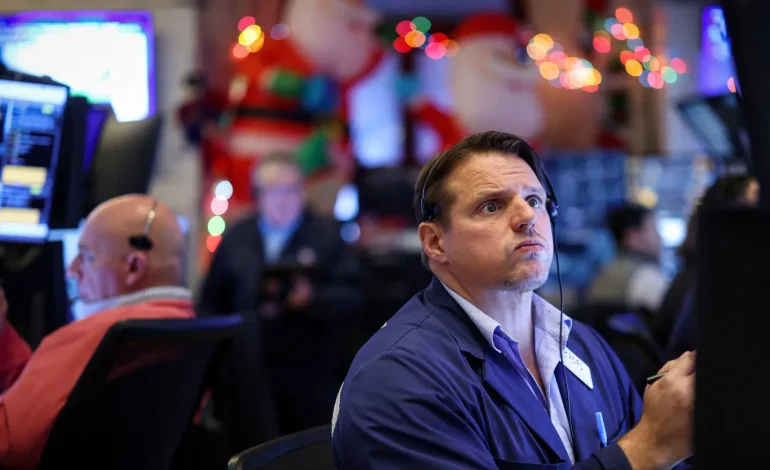Key European stock indices showed mixed results, reflecting investor caution ahead of crucial monetary policy updates:
- FTSE 100 (UK): Down 0.8% at 8,196.22 points
- DAX (Germany): Marginally down 0.03% at 20,307.71 points
- CAC 40 (France): Up 0.07% at 7,362.47 points
- FTSE MIB (Italy): Down 0.93% at 34,416.39 points
- IBEX 35 (Spain): Down 1.24% at 11,632.10 points
The modest rise in France’s CAC 40 and near-flat performance of Germany’s DAX contrasted with declines in the broader European market. Italy’s FTSE MIB and Spain’s IBEX 35 posted the steepest losses, reflecting heightened uncertainty.
Investor sentiment is being shaped by upcoming policy decisions from key central banks, including:
- U.S. Federal Reserve (December 18): Markets expect a 25-basis-point interest rate cut, marking the Fed’s final monetary policy move of 2024. Investors will also pay close attention to Fed Chair Jerome Powell’s commentary for hints on the future path of U.S. monetary policy.
- Bank of England (December 21): While a rate cut from the BoE is seen as unlikely, wage growth data from the UK has added complexity to the outlook. British wage growth accelerated to 5.2% in the three months ending October, above market expectations of 5.0%. This development may prompt the BoE to maintain its cautious approach on future rate cuts.
Central bank actions are crucial as investors seek clarity on the pace of rate cuts in 2025. Markets currently anticipate a total of just 50 basis points of cuts next year, compared to the aggressive 100 basis points seen since September.
German political developments are also influencing investor sentiment. Chancellor Olaf Scholz lost a parliamentary confidence vote on Monday, setting the stage for a snap election on February 23, 2025. This follows the collapse of Scholz’s coalition government last month. Political uncertainty in the Eurozone’s largest economy could weigh on investor confidence, especially as Germany’s economy faces “chronic” economic weakness, according to the Ifo Business Climate Index. The index declined to 84.7 in December from 85.6 in November, marking its lowest level since May 2020.
Capital Economics has flagged German political instability and a broader slowdown in European growth as potential headwinds for European equities in 2025.
Beyond Europe, global markets are also navigating volatility.
- US Market: US stock futures declined on Tuesday after the Dow Jones Industrial Average experienced its longest losing streak since 2018. Futures tied to the Dow, S&P 500, and Nasdaq all fell. Investors are also awaiting the outcome of the Fed meeting.
- Asian Markets: Trading was mixed, with China’s benchmark CSI 300 up 1.1%, while the Hong Kong Hang Seng Index rose 0.39%. Sentiment in Asia remains fragile amid concerns about weak consumer demand in China, despite government efforts to stimulate economic growth in 2025.
All eyes remain on the US Federal Reserve’s policy decision on December 18, followed by the Bank of England’s rate announcement on December 21. Traders will be closely monitoring policy statements for signals on future rate moves, which could influence investor sentiment heading into 2025. The potential for political instability in Germany adds another layer of risk for European markets.
CNBC and Bloomberg contributed to this report.









